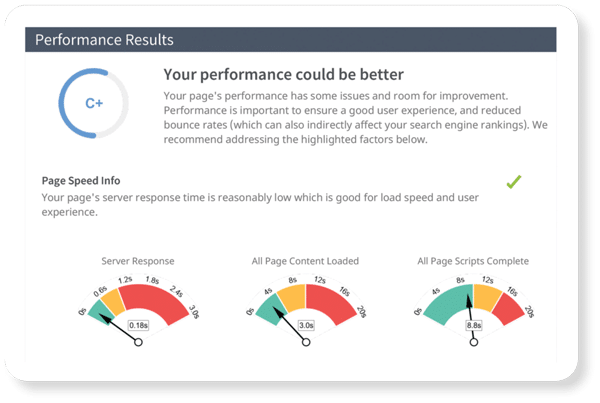While sponsored listings in search engines have existed for 10 years now, there are still many common misconceptions that we hope to debunk in this issue of MedNews. Not only is SEM (Search Engine Marketing) the only guaranteed way to get placement in search results, it is arguably the most effective form of advertising in existence today.
What is SEM (Search Engine Marketing)?
SEM is an advertising model used on search engines where advertisers only pay when a user actually clicks on an ad to visit the advertiser’s website. Advertisers bid on keywords they predict their target market will use as search terms when they are looking for a product or service. Additionally, they have the ability to select a geographic location to target as well as a schedule to control the days and times their ads are shown. When a search matches these controls, the advertiser’s ad is shown. These ads are called “Sponsored Links” and appear next to or above the “natural” or organic results on search engine results pages. SEM can be referred to by many names like PPC (pay-per-click), paid search, sponsored search, search advertising, etc.
Common Misconceptions
MYTH: SEM costs too much and is not in my budget
The reality is SEM offers sophisticated budgeting controls which are managed by MyAdvice.. Additionally, MyAdvice will optimize the campaign on an ongoing basis to deliver the most clicks for the lowest cost.
MYTH: Fewer people click on sponsored listings than on natural listings
There can be some truth to this depending on the research that you find. However, a study by comScore and Interactive Advertising Bureau (IAB) found that paid search listings had a click-through rate that was 4 times higher than natural search listings.
Whether one area receives more clicks than the other doesn’t change the fact that in SEM you only pay when people click on your ad. Why wouldn’t you want those clicks, even if there were fewer of them? With SEM it’s not an either/or situation; it’s putting your message in an area where you can guarantee yourself additional visitors to your web site.
MYTH: Visitors who click on sponsored listings are of a lower quality
The reality is searchers who click on the paid listings have proven to be more “action-oriented” visitors and more likely to turn into potential patients. In most cases they have done the research already and are looking to take action. A study by comScore and Interactive Advertising Bureau found that Paid Search visitors converted into leads/sales twice as much as visitors from natural search. Bringing traffic to your web site is important, but bringing quality traffic that converts into potential patients is the primary goal. SEM is a way to bring more quality traffic in a way that is measurable.
MYTH: SEM isn’t necessary if you are already ranked well organically via SEO. Similarly, you should only focus SEM on the particular keywords you can’t achieve high SEO ranking on.
Not only do multiple listings help build brand awareness, they also give you a much higher chance of searchers visiting your web site. MarketingSherpa Inc. did a study which shows that your site is three times more likely to be visited if you have placement in both paid and unpaid areas of the search results. As always, the important thing to remember is you do not pay just to have your ad shown, you only pay when a searcher clicks on your ad and views your presentation.
MYTH: Lots of click fraud takes place
Google has gone to great lengths to ensure that a robust click fraud detection system is in place. Most advertisers tend to worry about people clicking their ads over and over again, but this is extremely easy for Google to detect and filter out. MyAdvice also monitors the campaigns it manages and if unusual activity is detected, there is a system to request that Google conducts an investigation.
MYTH: Search advertising will tarnish your reputation
Generally, when comparing service providers, searchers tend to associate people with sponsored listings as being the authorities for the search. The more you can dominate the search results page with multiple listings, the better chance you have of being perceived as the authority and gaining that potential patient.
MYTH: Pay-per-click can improve organic SEO rankings
Unfortunately, this is not the case. SEM has absolutely no effect on your ability to rank organically in searches. However, what it does provide is information. Google does not disclose information to the general public such as the number of searches for particular keywords. However, when you do an SEM campaign, not only do you get access to this information, if you track it properly you can also get a handle on the quality of traffic from a particular keyword. This is why doing SEM can also help to determine the most effective keywords to target in an organic SEO campaign. What’s the sense to ranking well for a search that no one searches for, or which brings a low quality of visitors who don’t convert into leads?
Advertising In Search Continues To Grow Because It Works!
A recent New York Times article noted that as companies are pulling ad dollars from other forms of advertising amidst economic concerns, more and more dollars are being shifted into sponsored search. Now more than ever, businesses want to put their marketing dollars in SEM because nowhere else can they get the same reach, targeting, and tracking of results to ensure ROI. These are just some of the reasons that spending in paid search is expected to increase from $8.6 billion in 2007 to $16.59 billion in 2012, a 92.9% increase over 5 years, most of which will be fueled by small businesses marketing on the local level.

